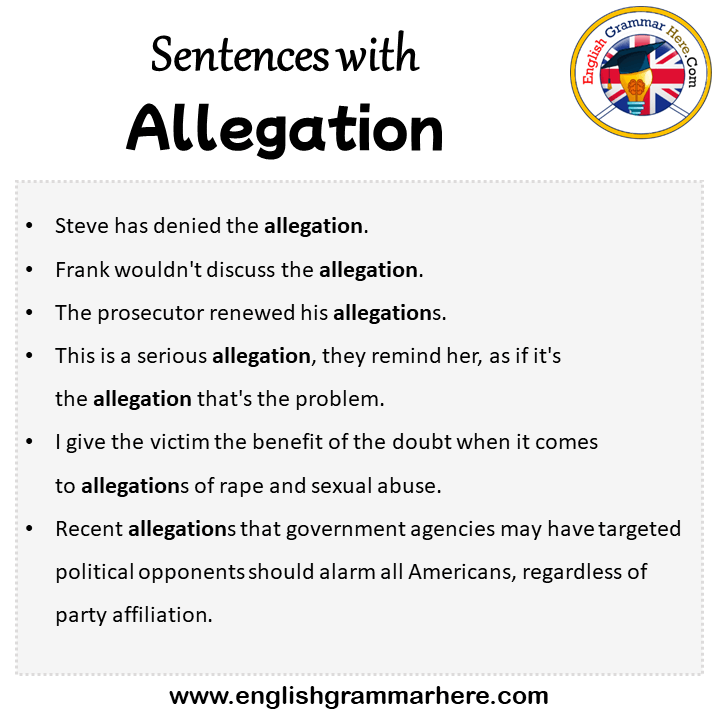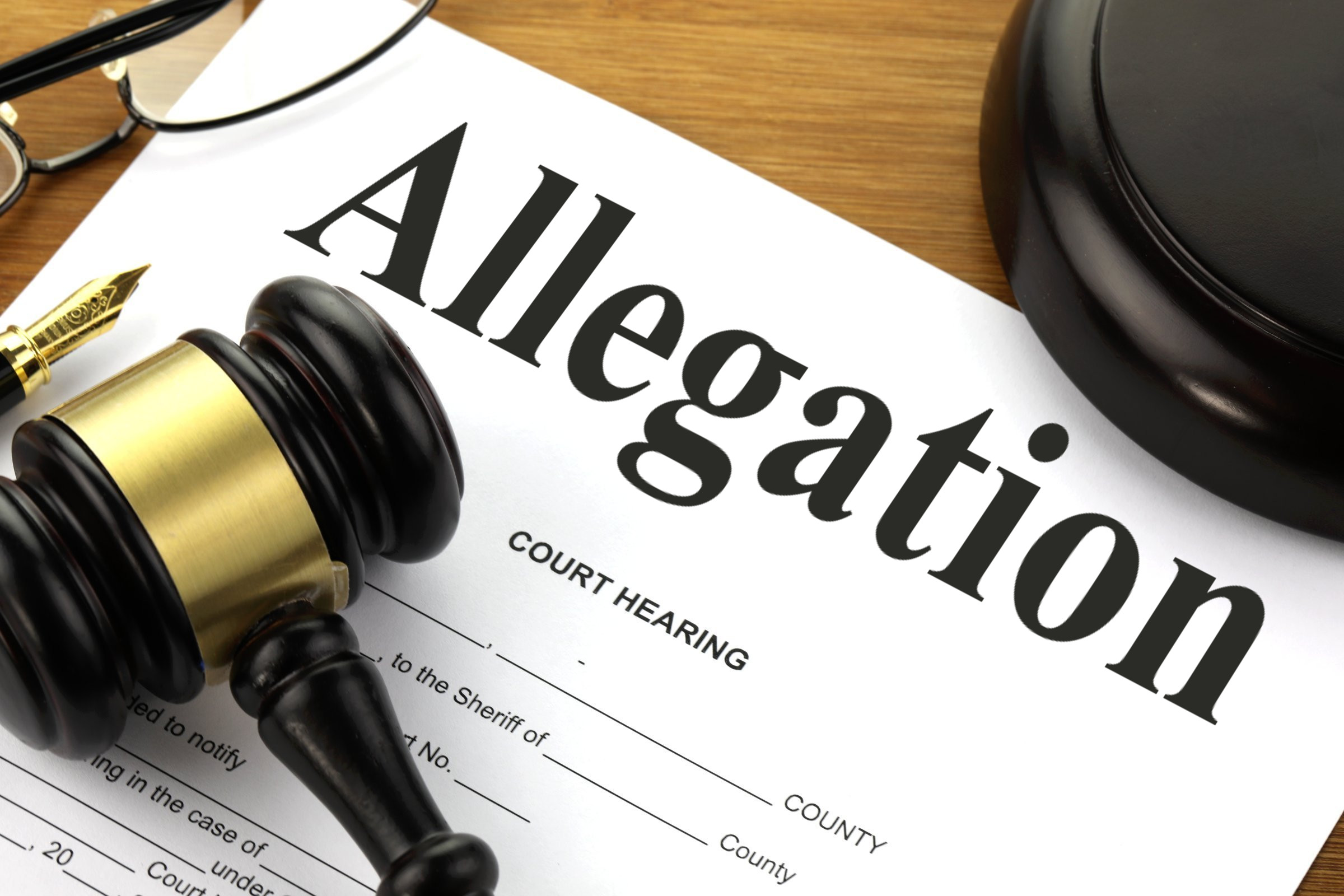When a well-known personality like Jamie Oliver comes into public discussion, people often hear terms like "allegations." It's a word that, you know, can really stir things up, making everyone wonder what's going on behind the scenes. For anyone following the news or, perhaps, just curious about how public figures are spoken about, grasping what an allegation truly means is pretty important. This article aims to pull back the curtain on this idea, helping us all better understand what these claims actually represent.
Jamie Oliver, a very familiar face in the culinary world, has been a part of many conversations over the years, from changing school dinners to, like, opening and closing restaurants. With someone so much in the public eye, it's almost natural for various claims or questions to come up from time to time. People are usually interested in what's being said, and that's totally fair.
So, when you hear the question, "What are the allegations against Jamie Oliver?", it really asks us to consider what an "allegation" is in the first place. It's not always about proven facts, but more about claims that are put forward. This piece will explore the idea of an allegation, what it entails, and how we might approach such claims when they involve a public figure like him.
Table of Contents
- Who is Jamie Oliver? A Brief Look
- What Exactly is an Allegation?
- Why Do Allegations Matter for Public Figures?
- Navigating Claims: What to Consider
- Common Questions About Allegations
Who is Jamie Oliver? A Brief Look
Jamie Oliver is, you know, a very well-known British chef and media personality. He gained fame with his television show "The Naked Chef" and has since become a strong voice for healthy eating and food education. He's also been involved in many restaurant ventures, some of which have, like, faced their own set of challenges over the years.
He's pretty much a household name globally, often recognized for his passionate approach to cooking and, too, his efforts to make a difference in food systems. His public profile means that anything said about him, even a slight claim, often gets a lot of attention.
Personal Details
| Aspect | Detail |
|---|---|
| Occupation | Chef, Restaurateur, Television Personality, Author |
| Nationality | British |
| Known For | "The Naked Chef," advocating for healthy eating, various restaurant chains |
What Exactly is an Allegation?
So, what are we actually talking about when we say "allegation"? Well, basically, an allegation is a statement saying that someone has done something wrong. It's an accusation or a claim that something amiss has happened, like, perhaps, a crime. The word itself often suggests that the thing claimed has not been confirmed or proven. It's an assertion that someone has done something wrong, often without proof, you know, just a statement.
The act of alleging something is what an allegation really is. It's a statement put forth, but it doesn't automatically come with evidence to back it up. For example, you might hear about "allegations of excessive drinking tarnishing a CEO's reputation." That doesn't mean it's proven, just that the claim has been made, and that, is that.
Allegations can really shape the course of a legal battle, and they can also influence what people think. They carry significant consequences for everyone involved. In a lawsuit, a party puts forth their allegations in a complaint or, perhaps, an indictment. They then use evidence at trial to try and prove their truth. But until that proof comes, it's just a claim, a bit like a starting point in a bigger story.
Why Do Allegations Matter for Public Figures?
For someone in the public eye, like Jamie Oliver, allegations can carry a very heavy weight. When claims are made against a well-known person, they often spread quickly, you know, through news outlets and social media. This rapid sharing means that even unproven statements can, in a way, impact a person's image and how the public views them.
Public opinion is a powerful thing, and allegations, even those without proof, can certainly influence it. People tend to form ideas based on what they hear, and sometimes, the claim itself becomes the story, rather than waiting for any sort of confirmation. This can affect a public figure's career, their business ventures, and even their personal life, you know, quite significantly.
There's also the aspect of legal implications. While an allegation isn't proof, it can be the starting point for investigations or legal proceedings. A company, for example, might deny allegations, but the very act of having to deny them can create a situation that requires a lot of time and resources to manage. It's a rather complex situation for anyone in the spotlight.
Navigating Claims: What to Consider
When you encounter allegations, especially concerning public figures, it's really helpful to approach them with a thoughtful mind. Just because a claim is made doesn't mean it's a confirmed fact. It's important to, like, consider the source of the information and whether any proof has been presented alongside the statement.
There's a nuanced legal distinction between accusations and allegations, and understanding their implications can be pretty useful. An allegation is a statement of wrongdoing, often without immediate proof, while an accusation can be a more direct charge. Both, however, highlight the importance of due process and the rights of those involved to respond to what's being said.
So, too, it's almost always a good idea to look for confirmed reports or official statements rather than just, you know, taking every claim at face value. Public discourse often involves many different voices, and not all of them are based on verified facts. Being a bit discerning helps everyone get a clearer picture of what's truly happening.
Common Questions About Allegations
Are allegations always true?
No, not at all. An allegation is, basically, a statement that someone has done something wrong, but it very often implies that the claim has not been confirmed or proven. So, just because a claim is made, it doesn't mean it's a fact. It's just a claim, really, and it needs to be looked into.
How do allegations affect someone's career?
Allegations can have a pretty big impact on a person's career, especially if they are a public figure. Even if unproven, they can, you know, damage a reputation, cause public trust to waver, and sometimes lead to investigations or legal battles. This can, in a way, affect job opportunities, business deals, and overall public perception.
What's the difference between an allegation and a conviction?
The difference is quite significant. An allegation is a claim or assertion that someone has done something wrong, often without proof. A conviction, on the other hand, means that a person has been found guilty of a crime by a court of law, after evidence has been presented and, you know, a verdict reached. One is a claim, the other is a legal finding.
Understanding what an allegation truly means, especially when it concerns someone like Jamie Oliver, helps us approach public information with a more informed perspective. It reminds us that claims are just that: claims, until they are, you know, confirmed or disproven through proper processes. Being aware of this distinction helps foster a more thoughtful conversation about public figures and the things said about them. Learn more about allegations on our site, and you can also explore more celebrity controversies here.
For a deeper dive into the definition of "allegation," you might find it helpful to check a reliable source like the Oxford Advanced Learner's Dictionary.



